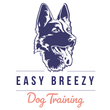Dog Parks or Playdates? Finding the Best Fit for Your Dog
Dog Parks: A Pawsitive Paradise or a Pooch Pitfall?
By Kyla Denault, Professional Dog Trainer
__________
Dog parks—where fur flies, friendships blossom, and zoomies reign supreme. It’s the go-to spot for dogs to unleash their inner wild child and for humans to sip coffee while pretending their dog has better social skills than they do. But are these grassy arenas all they’re cracked up to be? Let’s dig into the highs, the lows, and whether your pooch is barking up the right tree by joining the dog park crew.
The Pros of Dog Parks
- Socialization: Think of it as your dog’s version of speed dating but with less awkward small talk. It’s an excellent way for pups to polish up their social skills…with the right dogs of course!.
- Exercise: Dog parks are like free, outdoor gyms. Fetch, chase, zoomies—you name it. Your dog’s workout plan just got a whole lot more fun!
- Mental Stimulation: With new sights, smells, and furry friends to meet, dog parks provide a mentally enriching environment to keep those doggy neurons firing.
The Cons of Dog Parks
- Potential for Conflict: It’s not all tail wags. Fido might meet another dog with a bone to pick, and things can get tense. Excitement or overstimulation can sometimes lead to scuffles.
- Health Risks: A playground for pups can also be a playground for germs. Diseases like kennel cough, and giardia, love to hang out here, so ensure your dog’s shots are up to date.
- Overcrowding: Too many dogs in one space? Recipe for chaos. Overcrowding can stress even the friendliest of pups.
Is a Dog Park Right for Your Pup?
Not every dog is born for the dog park scene, and Finlay made that crystal clear around age 5. How did he tell me? When those overly energetic, no-boundaries pups would come barreling toward him, he’d shift into “defensive mode.” If they were respectful and chill, he was all about it, but when a dog got too up in his business, Finlay would play the role of the “fun police.” Eventually, the dog park just wasn’t his vibe anymore. So now? It’s all about playdates with his crew instead!

Here’s a quick rundown of dogs who’ll thrive and those who may need to sit this one out.
Dogs that might benefit from dog parks:
- Social Butterflies: If your dog loves everyone—humans and dogs alike—they’ll probably thrive in the park’s social whirl.
- High-Energy Hounds: Got a dog that’s part athlete, part Energizer bunny? Dog parks are perfect for burning off all that excess energy.
- Well-Trained Canines: Dogs that know their commands and can handle distractions are more likely to enjoy the chaos without becoming part of it.
Dogs that might be better off avoiding dog parks:
- Aggressive Dogs: No one wants a dog park showdown. If your dog tends to get confrontational, it’s best to skip the park.
- Fearful Dogs: If your dog is nervous or anxious around new dogs or loud environments, a bustling dog park could do more harm than good.
- Young Puppies: Before they’ve had all their shots (around 16 weeks), puppies should steer clear of public dog parks to avoid picking up anything nasty.
- Senior Dogs: Older dogs might prefer a leisurely stroll over the high-energy chaos of the dog park.
Body Language to Watch for in Nervous Dogs at Dog Parks
If your dog starts acting like they’d rather be anywhere else, it’s time to pay attention. Here’s what to watch for:
- Tucked Tail: If that tail’s between the legs, your dog’s feeling insecure or scared.
- Avoidance: Whether they’re sidestepping the social circle or giving another dog the cold shoulder, avoidance is a clear sign your pup’s not into it.
- Licking or Yawning: Frequent lip licks or yawning is your dog’s subtle way of saying, “I’m stressed.”
- Whining or Barking: Excessive vocalizing can signal discomfort or nervousness.
- Cowering or Shaking: If your dog’s doing their best-shrinking impression, it’s a solid indicator they’re overwhelmed.
- Raised Hackles: Raised fur along the spine can indicate fear or over-arousal.
When you see these signs, it’s best to give your dog space, let them take a breather, and avoid any stressful situations. If their park behaviour stays on the nervous side, a consultation with a trainer or behaviourist might help.

Tips for a Safe and Enjoyable Dog Park Visit:
- Keep an Eye on Your Pup: No distractions! You’re the designated lifeguard, making sure your dog’s playing nice and not causing a ruckus.
- Clean Up After Your Dog: Nothing says, “I’m a responsible dog owner” like scooping that poop!
- Respect Other Dogs' Space: Not every dog wants to be besties. Know when to give other dogs (and their humans) some room.
- Time It Right: Dog parks tend to be less chaotic at off-peak hours. Your dog might appreciate the extra elbow room!
So, is the dog park a delightful escape or an anxiety-inducing nightmare for your pooch? Weigh the pros and cons, understand your dog’s personality, and make the call. After all, the goal is to make sure your four-legged pal has a safe and fun time—whether they’re running free at the park or lounging at home.
Click here for the City of Ottawa Dog Parks Map
____________
Ottawa dog training Ottawa dog trainer Puppy training Ottawa Best dog parks in Ottawa Ottawa dog socialization Ottawa dog park etiquette Dog trainer advice Ottawa Safe dog parks in Ottawa Dog behavior Ottawa Signs of dog stress at dog parks Dog park tips Ottawa Dog park pros and cons Private dog training Ottawa Leash manners Ottawa Dog park alternatives Ottawa





virtual local number
https://auctionwheels.info/lots/54508625
https://ping.space/
Leave a comment